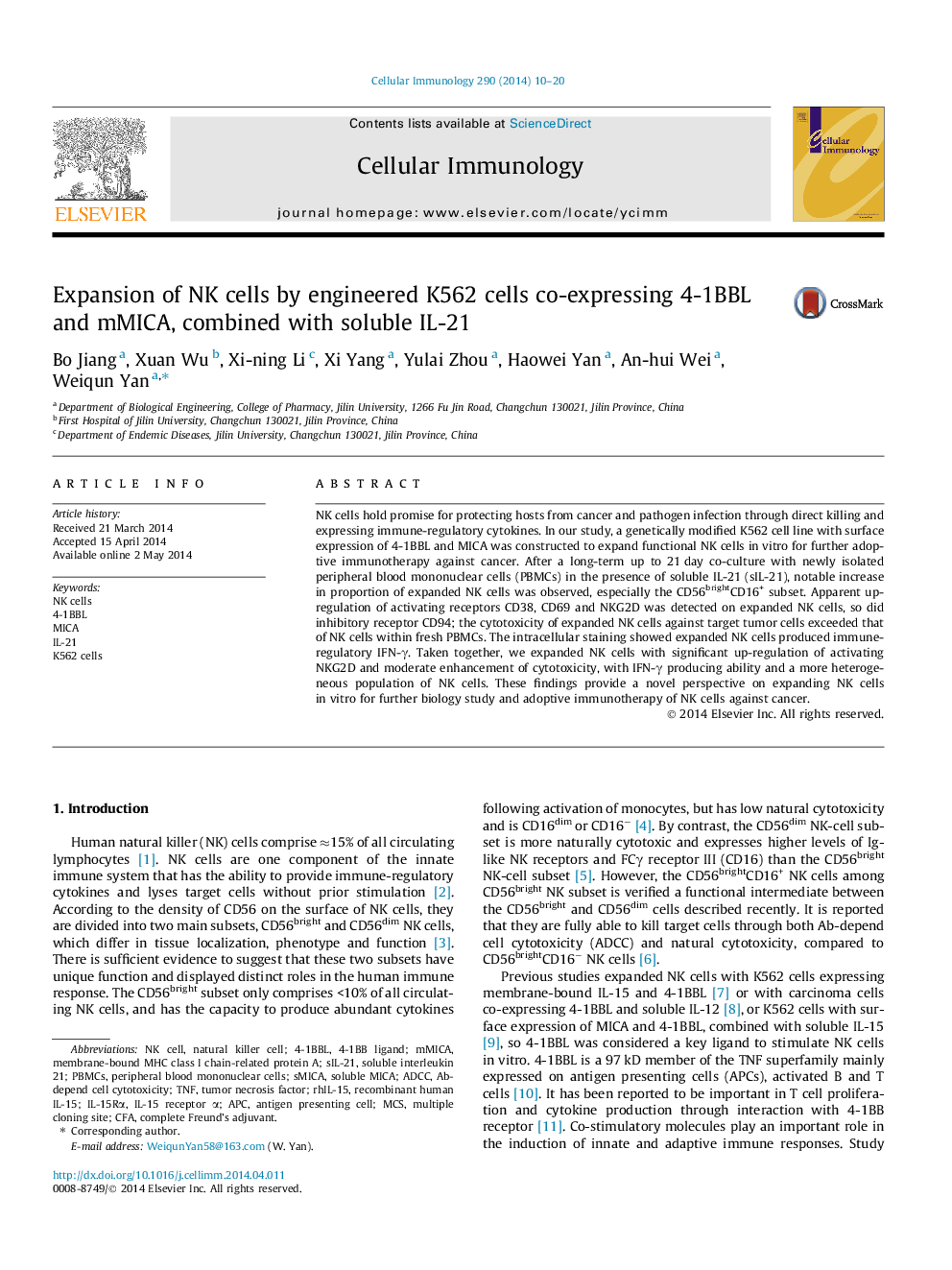| Article ID | Journal | Published Year | Pages | File Type |
|---|---|---|---|---|
| 2167039 | Cellular Immunology | 2014 | 11 Pages |
Abstract
NK cells hold promise for protecting hosts from cancer and pathogen infection through direct killing and expressing immune-regulatory cytokines. In our study, a genetically modified K562 cell line with surface expression of 4-1BBL and MICA was constructed to expand functional NK cells in vitro for further adoptive immunotherapy against cancer. After a long-term up to 21 day co-culture with newly isolated peripheral blood mononuclear cells (PBMCs) in the presence of soluble IL-21 (sIL-21), notable increase in proportion of expanded NK cells was observed, especially the CD56brightCD16+ subset. Apparent up-regulation of activating receptors CD38, CD69 and NKG2D was detected on expanded NK cells, so did inhibitory receptor CD94; the cytotoxicity of expanded NK cells against target tumor cells exceeded that of NK cells within fresh PBMCs. The intracellular staining showed expanded NK cells produced immune-regulatory IFN-γ. Taken together, we expanded NK cells with significant up-regulation of activating NKG2D and moderate enhancement of cytotoxicity, with IFN-γ producing ability and a more heterogeneous population of NK cells. These findings provide a novel perspective on expanding NK cells in vitro for further biology study and adoptive immunotherapy of NK cells against cancer.
Keywords
Related Topics
Life Sciences
Biochemistry, Genetics and Molecular Biology
Cell Biology
Authors
Bo Jiang, Xuan Wu, Xi-ning Li, Xi Yang, Yulai Zhou, Haowei Yan, An-hui Wei, Weiqun Yan,
